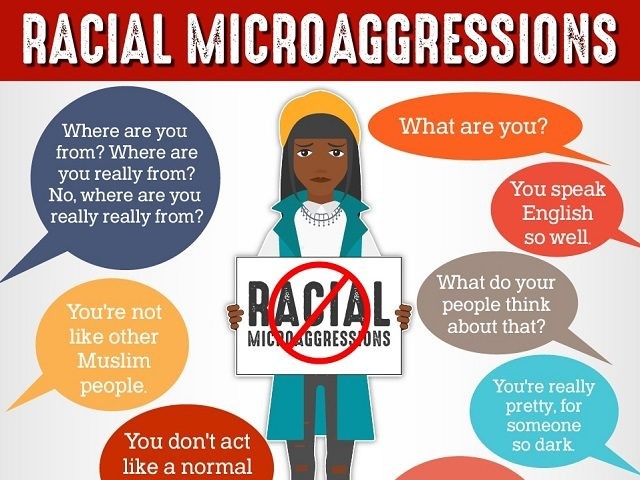The University of California has published a list of unacceptable “microaggressions” on its official website, which includes offensive statements such as “America is the land of opportunity.”
The Academic Affairs department of the University of California Santa Cruz provides the list of politically incorrect expressions and actions to students and faculty to equip them to recognize microaggressions and eliminate them.
Examples of allegedly “racist” microaggressions furnished by the university include statements such as: “When I look at you, I don’t see color,” “There is only one race, the human race,” and “America is a melting pot.”
It is also a microaggression to say that “the most qualified person should get the job” or to express doubts about the effectiveness of Affirmative Action programs, the website claims. Moreover, to say that “America is the land of opportunity” propagates the “myth of meritocracy,” as do statements such as “Everyone can succeed in this society, if they work hard enough.”
The University of California offers a helpful definition of microaggressions to better educate the academic community in politically correct behavior.
“Microaggressions are the everyday verbal, nonverbal, and environmental slights, snubs, or insults, whether intentional or unintentional, that communicate hostile, derogatory, or negative messages to target persons based solely upon their marginalized group membership,” the website states.
“The first step in addressing microaggressions is to recognize when a microaggression has occurred and what message it may be sending,” the university declares, before proceeding to enumerate common offenses.
According to the Academic Affairs department, microaggressions vary with context and race, so saying something to a black or Asian person is different from saying it to a white person.
For example, it is perfectly acceptable to ask a Caucasian student “Why are you so quiet? We want to know what you think,” whereas to ask this same question of an Asian, Latino or Native American constitutes a microaggression, because it implies that they have not successfully assimilated to “the dominant culture.”
Similarly, asking a black person “Why do you have to be so loud/animated?” is strictly verboten, while asking a white person this question is completely fine.
Moreover, whites should never use the expression “You people” when speaking to blacks, whereas blacks may address whites in this way, the university suggests.
In the eyes of the university, microaggressions also extend to the area of sexual identity or orientation, and include limiting options on official forms to “Male or Female” when identifying one’s sex, or offering only two options for relationship status: married or single.
UC Santa Cruz has been a pioneer in the war against microaggressions and in 2016 hosted a forum titled “Microaggression in the Classroom.” The event was part of UCSC’s “Mentoring Program for Faculty,” sponsored by the Office for Diversity, Equity, and Inclusion.
If you find the double standards and outright foolishness of academic political correctness off-putting, you are in good company.
In a brilliant article in Forbes during the 2016 presidential campaign, the celebrated British historian Paul Johnson called political correctness “one of the most dangerous intellectual afflictions ever to attack mankind.”
PC has “enormous appeal to the semieducated,” Johnson observed, and it “appeals to pseudo-intellectuals everywhere, since it evokes the strong streak of cowardice notable among those wielding academic authority nowadays.”
“Any empty-headed student with a powerful voice can claim someone (never specified) will be ‘hurt’ by a hitherto harmless term, object or activity and be reasonably assured that the dons and professors in charge will show a white feather and do as the student demands,” he said.
“Thus, there isn’t a university campus on either side of the Atlantic that’s not in danger of censorship,” he concluded.
Follow Thomas D. Williams on Twitter Follow @tdwilliamsrome

COMMENTS
Please let us know if you're having issues with commenting.